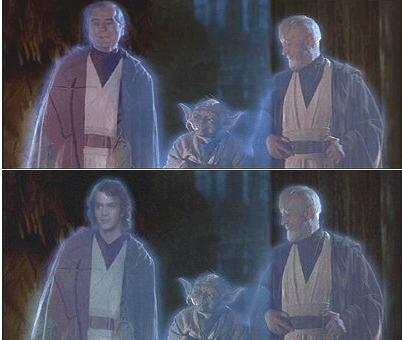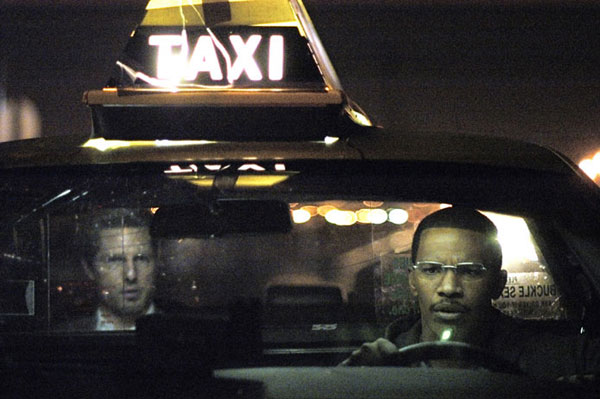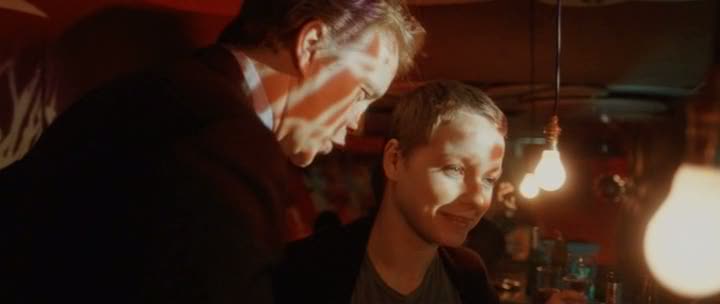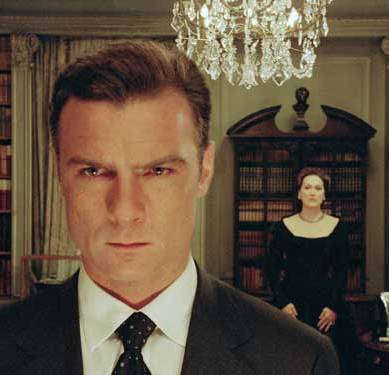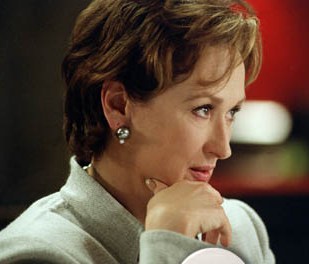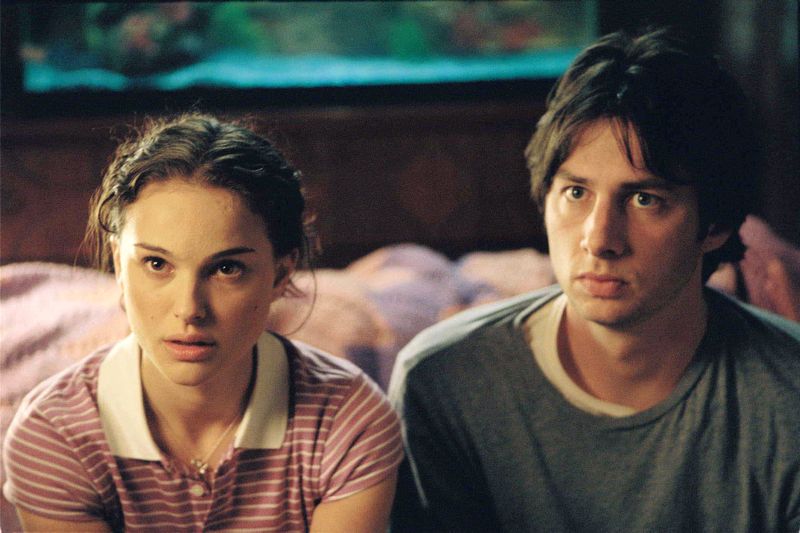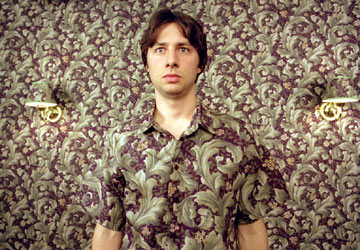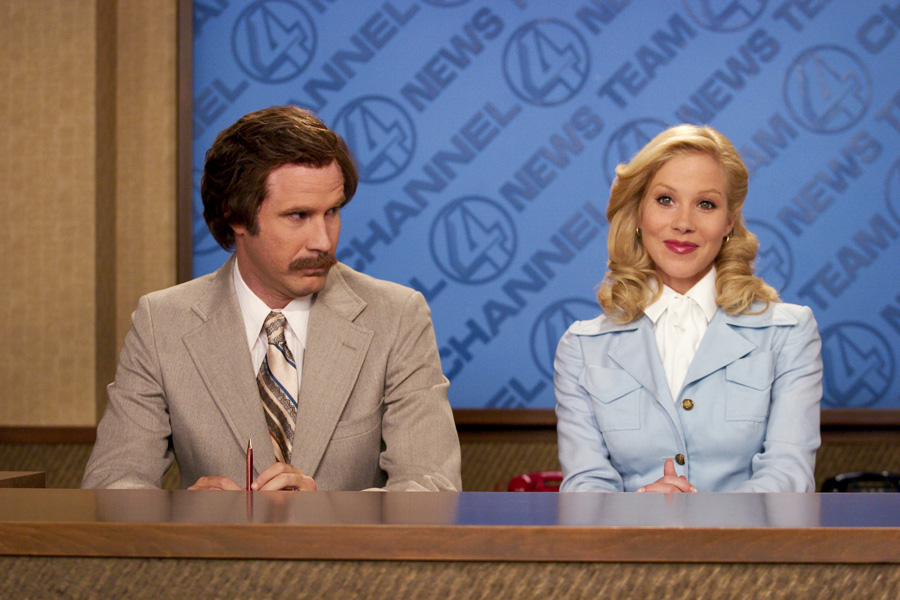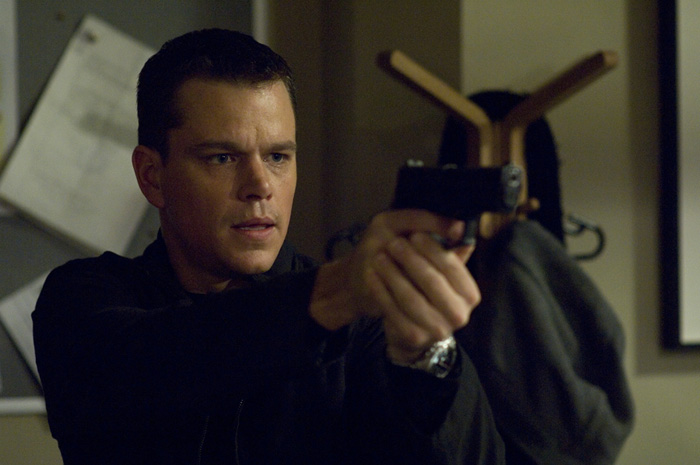 Having completed my chores in timely fashion this past Sabbath morn, I decided to undertake a sojourn in M. Night Shyamalan’s The Village, in spite of my apprehension over The Curse of William Hurt and The Mel Gibson Film Which We Do Not Much Enjoy. As you perchance have ascertained, it seems the goodly people of this nonsensical village have experienced some difficulty with the strange and mysterious residents in the nearby woods. Alack, Number Six is nowhere to be found, and Goody Ellen Ripley seems too engaged sweeping and darning at the present time to handle the marauders in her usual efficacious manner. This is highly unfortunate, for M. Night Shyamalan’s The Village is an exceedingly drab and silly place, whose full terribleness can only adequately be described in spoiler-filled invisitext (Note: invisitext turned off — it’s been 15 years):
Having completed my chores in timely fashion this past Sabbath morn, I decided to undertake a sojourn in M. Night Shyamalan’s The Village, in spite of my apprehension over The Curse of William Hurt and The Mel Gibson Film Which We Do Not Much Enjoy. As you perchance have ascertained, it seems the goodly people of this nonsensical village have experienced some difficulty with the strange and mysterious residents in the nearby woods. Alack, Number Six is nowhere to be found, and Goody Ellen Ripley seems too engaged sweeping and darning at the present time to handle the marauders in her usual efficacious manner. This is highly unfortunate, for M. Night Shyamalan’s The Village is an exceedingly drab and silly place, whose full terribleness can only adequately be described in spoiler-filled invisitext (Note: invisitext turned off — it’s been 15 years):
Hoo boy…grab your torches and pitchforks, village people, cause we’ve got a really lousy film on our hands. (Ok, Van Helsing and Riddick were worse, but they harbored fewer delusions of grandeur…this film is just a pretentious bore.) As a refresher, I liked Sixth Sense, was intrigued by Unbreakable, and loathed Signs, and this one’s probably just as bad as Mel Gibson’s run-in with the water-and-door-averse aliens. Even though the plot twists in this bad boy can be seen a mile away, they still don’t make any sense. As with Signs, this is a film so lame I can only wrap my mind around it in numbered point form:
1) First off, the whole Elders bit. Is it really possible not to see this coming? What other explanation could there be for those big black cabinets in every house? I understand that these Villagers were not exposed to Scooby Doo, but how strikingly incurious could they be?
2) Along those lines, if you call a shed “The Old Shed That Is Not To Be Used” in any human society, no more than a week would pass before some enterprising youth started skulking around it. And why are the creatures called “Those We Shall Not Speak Of” anyway, when everyone is incessantly speaking about them? Surely some other nomenclature would take off at some point.
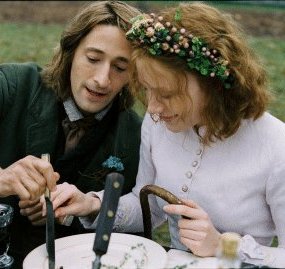 3) How come not a single Village soul has ever attempted to beat back the not-so-frightening wicker creatures with a block of wood or a stick of fire or something? Hasn’t anyone ever wondered why the Elders never seem to be around when the creatures come out?
3) How come not a single Village soul has ever attempted to beat back the not-so-frightening wicker creatures with a block of wood or a stick of fire or something? Hasn’t anyone ever wondered why the Elders never seem to be around when the creatures come out?
4) What is this clipped faux-nineteenth century argot everybody’s speaking in? It’s embarrassing (although A.O. Scott made an excellent point when he noted that this is how William Hurt sounds all the time. Perhaps this actually makes sense.)
5) After our worst fears about the Scooby Doo Elders have been confirmed, why would Shyamalan think the blind girl’s encounter in the woods would be scary in the slightest? The only real question was whether it was Brendan Gleeson or Adrien Brody in the costume.
6) What vested interest would the government have in protecting this village from fly-overs, poachers, etc.? Nada, zip, zero. We already have Colonial Williamsburg.
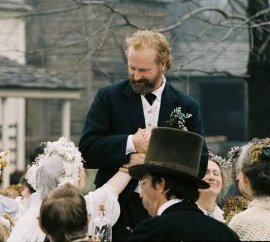 7) Whatsmore, I find the political economy of this film somewhat repellent. Is the urge to create a rigid, backward-looking, and authoritarian society — where everyone knows everyone else’s business (except of course, the Big Business), where the only people of color are Red, and where the only trouble around is Adrien Brody the Village Idiot — really as worthy and benign as Shyamalan makes it out to be? These people are nutjobs, but they’re portrayed as humanists. If anything, the end of the film makes it seem as if this noble way of life will and should go on. There’s no real critique made at all of the Elder’s impositions, only of its misuse by Jealous Brody.
7) Whatsmore, I find the political economy of this film somewhat repellent. Is the urge to create a rigid, backward-looking, and authoritarian society — where everyone knows everyone else’s business (except of course, the Big Business), where the only people of color are Red, and where the only trouble around is Adrien Brody the Village Idiot — really as worthy and benign as Shyamalan makes it out to be? These people are nutjobs, but they’re portrayed as humanists. If anything, the end of the film makes it seem as if this noble way of life will and should go on. There’s no real critique made at all of the Elder’s impositions, only of its misuse by Jealous Brody.
8) Speaking of which, village idiot? Blind girl who sees auras? C’mon now. You’re not even trying.
9) I see very well how Shyamalan might have intended this as a Twilight Zone meditation on terrorism, what with fear-mongering and color codes and all that. But, if that’s the case, then the film should not have been constructed as a Sixth Sense thriller rife with plot twists in the last third (particularly when the plot twists are so glaringly obvious). It should have shown its cards up front and then attempted to explore this allegory a little more creatively.
In sum, with Goody Weaver and Mssrs. Brody and Gleeson as residents of this unfortunate village, I had thought my brief stay in these woods might be more relishable. As it is, I am headed for the towns and shall not return.
 Not to beat a dead horse, but Shaun (Simon Pegg of Spaced) is having a bad go of it. He’s a working stiff killing time at a dead-end job. His relationship with his long-term girlfriend — who has decided he’s a deathly bore — has given up the ghost. His patience with his deadbeat flatmate is on its last legs. And, just as all his hopes for this world seem to have gone six feet under, the rest of the neighborhood starts acting rather strangely…
Not to beat a dead horse, but Shaun (Simon Pegg of Spaced) is having a bad go of it. He’s a working stiff killing time at a dead-end job. His relationship with his long-term girlfriend — who has decided he’s a deathly bore — has given up the ghost. His patience with his deadbeat flatmate is on its last legs. And, just as all his hopes for this world seem to have gone six feet under, the rest of the neighborhood starts acting rather strangely…
